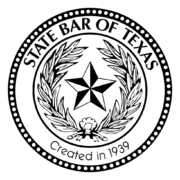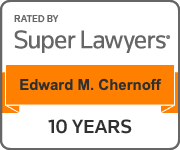Houston Expungement Attorney
Ed Chernoff is an Experienced Lawyer for Expungements in the City of Houston Representing Clients in Harris County, Fort Bend County, Montgomery County, and Throughout Texas
In practice, the District Attorney’s office and various law enforcement agencies may agree to expunctions even if the statute is not strictly applicable. It is best to speak with a Houston expungement attorney who prosecutes expunctions in order to see if it is worth it for you to apply.
According to Texas Code of Criminal Procedure Art. 55.01, a person arrested and charged with a crime is eligible for an expunction of the case in Texas if any of the following situations has occurred:
- Acquittal at trial,
- Conviction that was pardoned;
- Dismissal of misdemeanor or felony based on mistake, false information or similar reason;
- Indictment no-bill,
- Completion of Pretrial Diversion or veterans program.
Facing Criminal Charges in Texas and Have Questions? I’m Houston Criminal Defense Attorney Ed Chernoff, And I Can Protect You. Call My Office Today at 713-222-9141 or Fill Out My Online Contact Form For a Free Consultation About Your Case.
Expunction Process
An expunction, also called expungement, requires a lawsuit in the District Civil Court. The lawsuit alleges eligibility for an expunction under the statute and notices each and every entity that created or stored a record of the petitioner’s arrest, charge or legal process through the criminal justice system. This always includes the District Attorney’s office, the District or County clerk, the Department of Public Safety and the law enforcement agency that arrested the petitioner. Other agencies must be served as well and if the criminal lawyer who files the lawsuit does not notice these agencies, then the records of these agencies will not be expunged despite an order of expungement.
After all parties answer the lawsuit, a hearing is scheduled in the District Court. Upon granting of the expunction, the District Court orders each noticed agency to destroy all evidence of any contact, arrest, charge or notation involving the Petitioner for the particular eligible case.
Essentially, what this means is that so far as the government is concerned, the charge and case never happened. In fact, the petitioner can legally claim that he was never arrested and charged. It is important to remember that not all individuals who have records of your arrest and charge are government entities. There are hundreds of data-gathering private companies that may have a record of your charge. Further steps must be taken to clean these records.
Clearing Your Criminal Record for Lide With an Expunction
Oftentimes, I’ll ask a jury panel if they are proud of the fact that they have no criminal record. Everyone readily agrees with the importance of maintaining a clean record. Even one smudge on a criminal report follows you throughout life and causes significant financial harm, personal loss, and embarrassment. These days, every employer asks about your criminal record. In fact, every employer checks a potential employee’s criminal record since it is so easy and inexpensive to do so with the advent of internet applications. A criminal conviction can affect your ability to obtain employment, education, credit, and financial assistance. Many apartment complexes will not rent an apartment to someone with a record.
The consequences of having a criminal record will last with you as long as the criminal record exists. The process of entirely removing a person’s criminal record is called an expungement. An expunction is a powerful remedy. Immediately upon issuance of the District Judge’s order to expunge, it becomes illegal for anyone to disclose your record. All agencies who had any contact with you during the arrest, charging process, prosecution, bonding or booking must completely destroy all traces of your existence in their system. If you are eligible to expunge your criminal record, you should immediately contact a criminal defense attorney specializing in criminal record expungement like the Houston expungement attorney at Chernoff Law.
I don’t have the words to express how grateful we are for Mr. Chernoff and his team. They always kept us updated and were available for any questions we had. They were able to obtain the best possible outcome. I would definitely use him again and highly recommend him.
Ed saved my life and career. Incredible lawyer if you’re in trouble.
He put my fears at ease and helped me get my case dismissed and my life back on track. I would highly recommend hiring Ed and letting him do the same for you.
Do I Have to Hire a Houston Expungement Attorney?
If having a criminal record is adversely affecting your life, it is imperative that you speak with our firm about criminal record expungement. Our founding partner Ed Chernoff will be able to discuss your criminal record with you and explore the possibility of erasing your embarrassing and undesirable past. We are dedicated to achieving criminal record expungement for our qualifying clients. We invite you to contact our firm at once to discuss the process of criminal record expungement.
Having your criminal record removed through criminal record expungement is the first step in moving beyond your past, but the process can be challenging and complicated. A Houston expungement attorney from our firm will be able to assist you through this daunting legal process and help you attain criminal record expungement. Our legal team is here to assist you with criminal record expungement and will fight on your behalf to remove and destroy a criminal record that is holding you back in life.
What is a Petition for Non-Disclosure?
Some record events cannot be expunged, especially if you have completed a deferred adjudication. It may be that the only resolution available to scrub your record will be for a Petition for Nondisclosure.
Although they are not as powerful as expunctions, a Petition for Nondisclosure can serve many of the same functions as an expunction. If the court has issued an Order of Nondisclosure, potential and current employers, apartment property managers and others will not be able to find out about your prior deferred adjudication from the District Clerk. Unlike expunction, however, law enforcement will still have access to your priors. Your fingerprints and any police records on your case will remain on file.
Am I Eligible for an Order of Non-Disclosure?
Certain deferred adjudication records can now be ordered to be made non-public. For most crimes, nondisclosure is available upon completed deferred adjudication. However, there are limitations to this privilege and the court doesn’t have to grant a Petition for Nondisclosure if it is not properly presented. Individuals who have committed the following crimes will not be eligible for a Petition of Nondisclosure:
- Indecency with a child
- Sexual assault
- Aggravated kidnapping
- Compelling prostitution
- Capital murder
- Murder
- Stalking
- Violation of a protective order
- Any offense involving family violence
There are many other crimes that disqualify an individual from seeking a Petition for Nondisclosure, and there is also a required waiting period for some crimes before the court can consider the petition; five years for felonies and two years for some misdemeanors.
Finally, only completed deferred adjudications are eligible.
The Process of a Petition for Non-Disclosure
Unlike expunction, a Petition for Nondisclosure is filed in the criminal court where the defendant received deferred adjudication. The District Attorney receives notice and is given an opportunity to object to the sealing of the case. A hearing is scheduled and the defendant appears in the criminal court with their lawyer. Presentation of the petition and argument takes place at the hearing. Once granted, the District clerk is ordered to seal the record from the public.
DWI Non-Disclosure
Beginning on September 1, 2017, those previously convicted of Driving While Intoxicated can petition to have their record nondisclosed if they have no prior DWI convictions and were not convicted of a Class A based on a blood or breath concentration greater than .15%. The process is similar to the request for nondisclosure in other types of cases.
Does Deferred Adjudication in Texas Appear on Background Checks?
With the recent amendment to the Government Code §411, the practical benefits of deferred adjudication have increased even more. Now, defendants are allowed to file a Petition of Nondisclosure in certain instances. If you are given deferred adjudication, you can honestly tell employers that you have never been convicted of a crime. Keep in mind, however, that deferred adjudication will still appear on their records because it is not the same as a dismissal. Texas law does not allow defendants to qualify for deferred adjudication if they are under trial for certain crimes.
This used to be true for DWI. However, recent law changes do allow for a sealing of a DWI record, even if the individual has been convicted of the crime. Certain restrictions apply, so if you have a DWI that needs to be sealed, contact DWI Lawyer Ed Chernoff to find out whether you qualify.
Chernoff Law is Committed to Answering Your Questions. I Offer a Free Consultation and I’ll Gladly Discuss Your Case With You at Your Convenience. Contact Me Today to Schedule an Appointment.
What is the Benefit of Deferred Adjudication?
In Texas, the Judge can grant deferred adjudication under Texas Code of Criminal Procedure Art. 42A.101 if “in the judge’s opinion the best interest of society and the defendant will be served.” The benefit of Deferred Adjudication is that no finding of guilt is entered by the Judge and instead makes a finding that the evidence substantiates guilt. The defendant, who pleads guilty, is not found guilty and ordered to serve a period of community supervision. If he successfully completes the conditions of his community supervision, he will never be convicted.
Deferred adjudication allows an accused to say truthfully that he has never been convicted of the crime. This may be helpful in certain employment and licensing situations. At the end of a successful community supervision term, the Judge will dismiss and discharge. However – and this is important – the defendant will still have a record of his plea and sentence unless it is sealed by an Order of Non-Disclosure.
Several crimes are not eligible for deferred adjudication, such as DWI offenses, certain sex crimes, and Murder.
Can I Expunge a Deferred Adjudication?
An individual who has completed a deferred adjudication cannot have his record expunged. However, The Texas Legislature may change this in the next few years. Currently, the only way to address your record of a deferred adjudication is through a Petition for Non-Disclosure, which is discussed above. This process is completely different from an expunction, including the court in which it is filed.
























Reviews Matter
★
★
★
★
★
★
★
★
★
★
★
★
★
★
★
★
★
★
★
★

